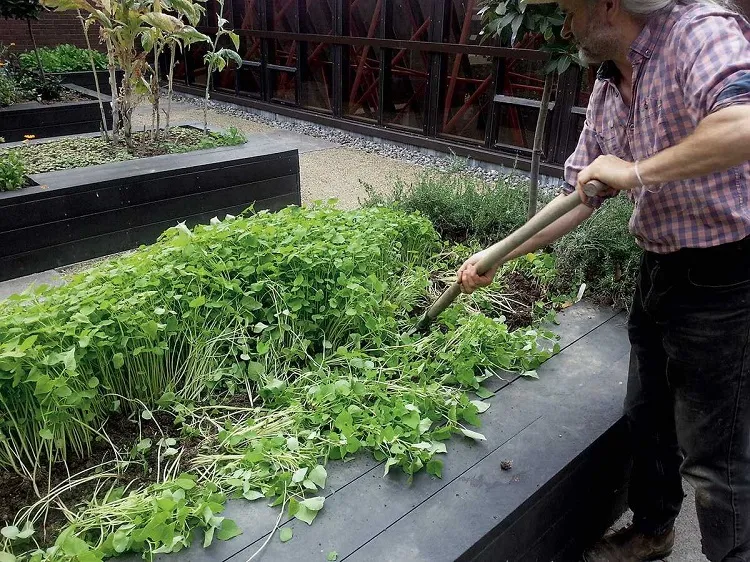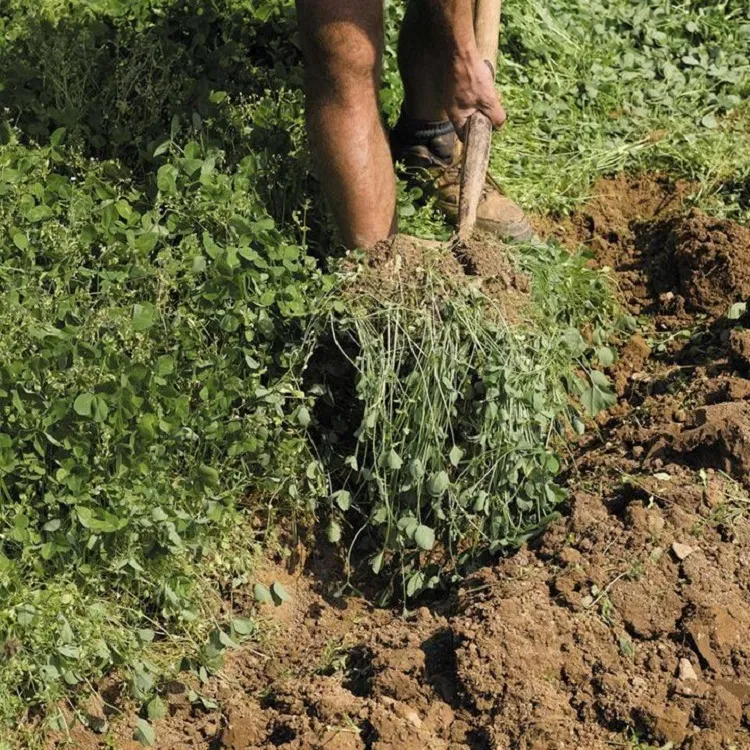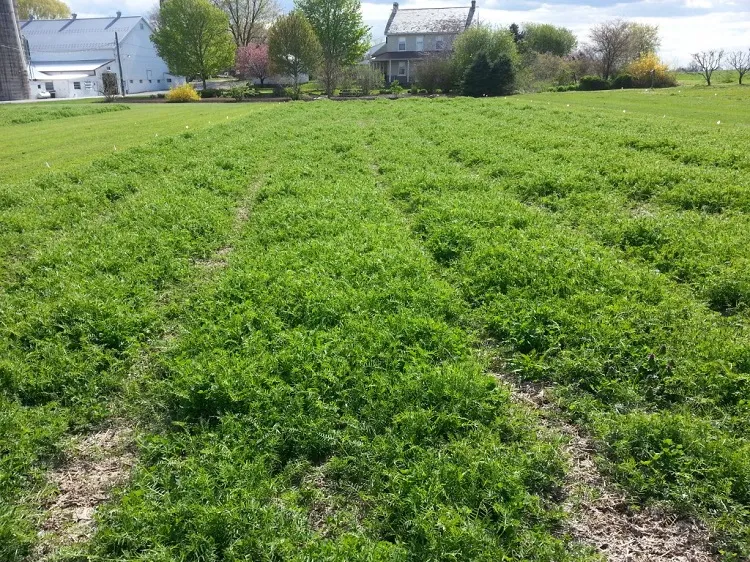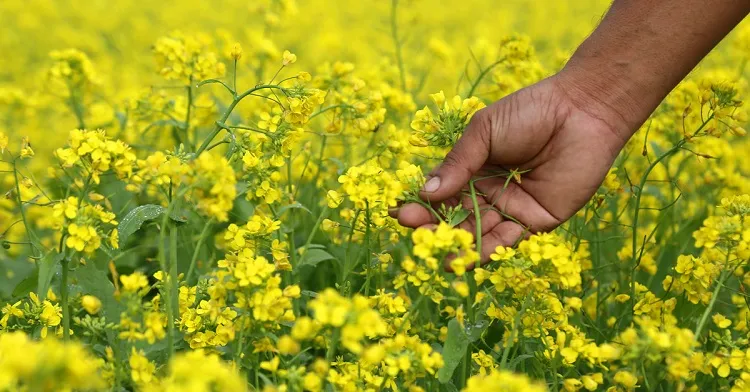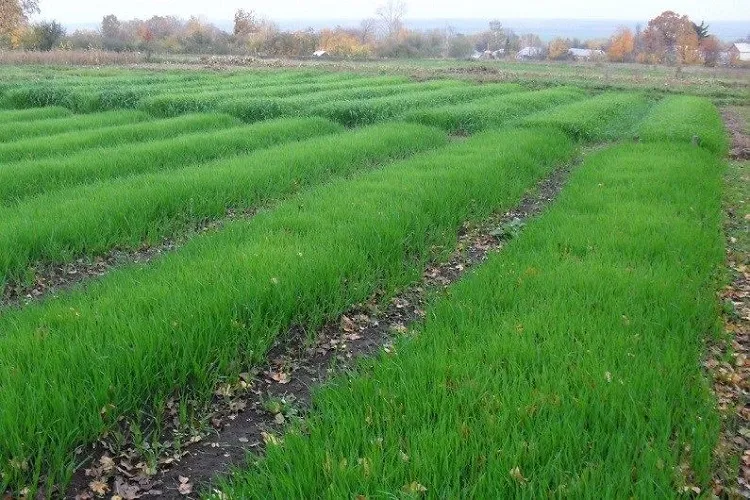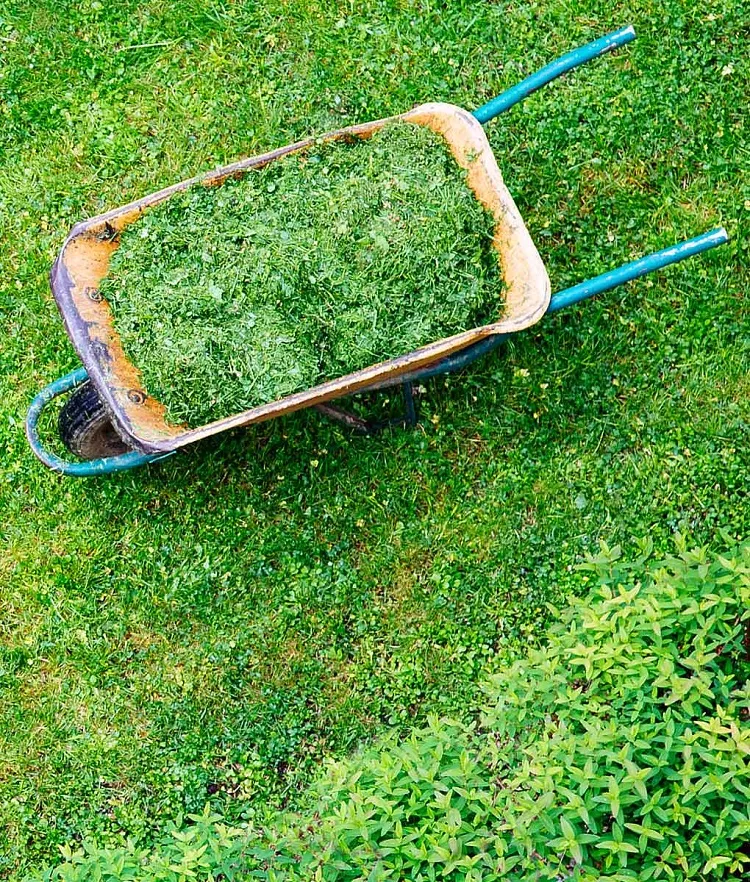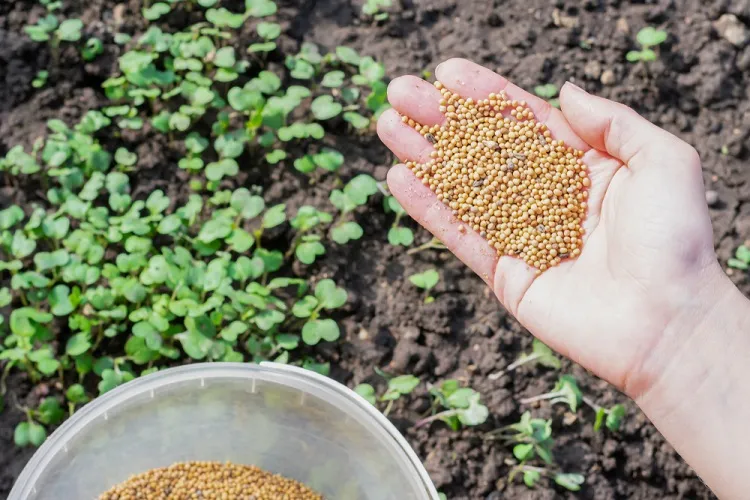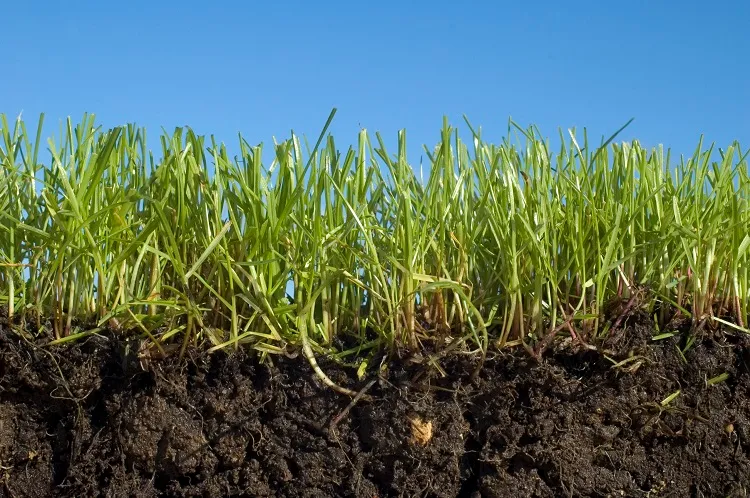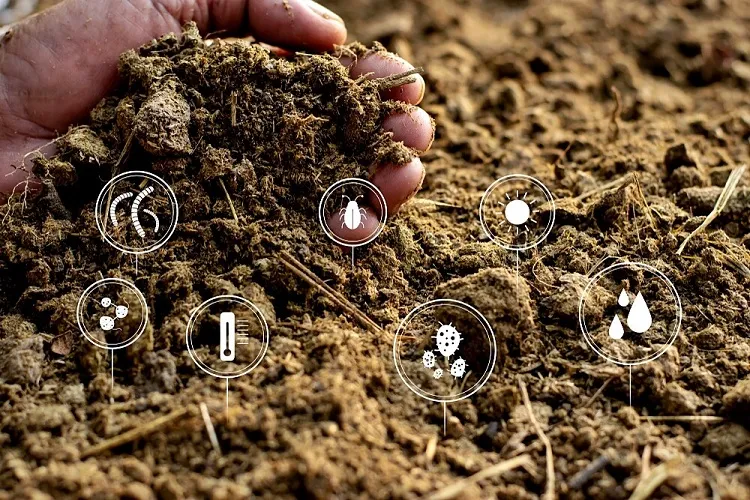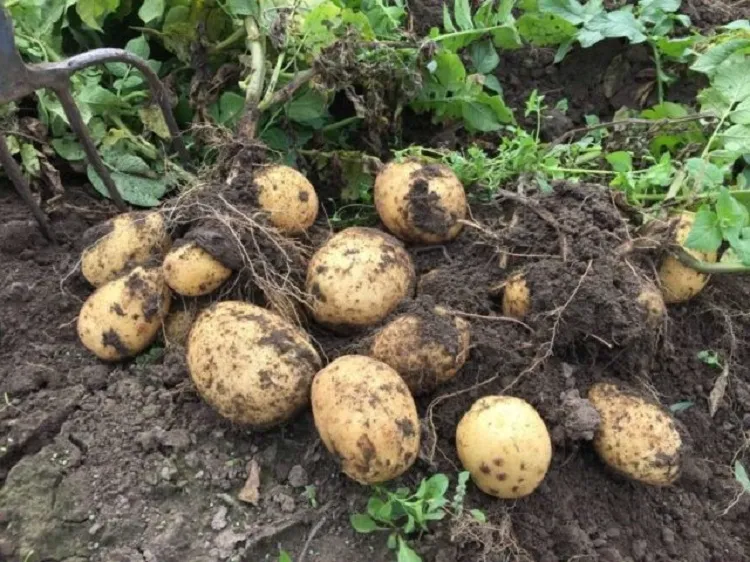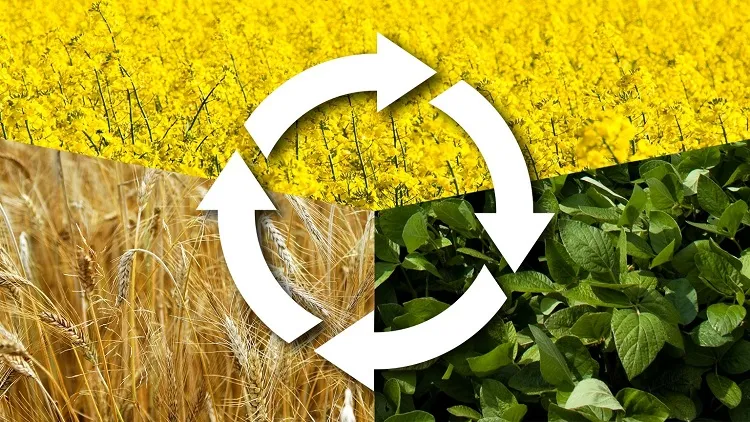How to improve garden soil with green manure? There are plants that are grown as a nutrition to other plants. Embrace this natural and fruitful way!
Having a healthy and fertile soil is the first concern for your successful gardening this summer. One effective natural and eco-friendly way to make your garden to thrive is through the use of green manure. These specific crops, specially grown to be mixed into the soil, will enhance its fertility, adding valuable plant nutrients, enriching its structure, and allow it to retain and save moisture. Today we are going to address these issues in the article, and reveal how to improve garden soil with green manure for your bountiful harvest and vibrant flowers.
Green Manure Definition
Green manure, also called cover crops or living mulches, are plants that are specially cultivated to achieve an improved soil health rather than for harvest. Therefore, they are grown, cut down, and then incorporated into the soil while still green, before their ripening. While this plant material decomposes, it releases valuable nutrients, adds organic matter, and enhances overall fertility of your garden.
Types of Green Manure
There are several types of plants, which are commonly used to improve garden soil with green manure. Here are a few examples of them, each of them is suitable for specific needs of the garden:
- Clover, alfalfa, and vetch: Leguminous plants like clover, alfalfa, and vetch are well known green manure crops. They have the useful ability to fix atmospheric nitrogen through a symbiotic relationship with nitrogen-fixing bacteria in their roots. This enriches the soil with nitrogen and other important nutrients for plants growth.
- Mustard, radish, and cabbage: Plants from the Brassica family, such as mustard, radish, and cabbage, have deep roots, with which they break up compacted soil and scavenge nutrients from deep soil layers. This makes these valuable substances available for the main crop grown after the green manure.
- Ryegrass, barley and oats: Grasses like ryegrass, barley, and oats are excellent crops for performing erosion control and weed suppression. They produce abundant biomass, and when incorporated in the soil, it improves its structure and becomes rich in organic matter.
Read also: Why plant grass seeds in December? Here is the answer!
How Do You Add Green Manure to Soil?
When you decide to improve your garden soil with green manure, you should follow some steps, even though this is a straightforward process. Here’s what is important to do in this regard:
- Plant your crop: Select the appropriate green manure based on your soil type and desired result. Follow the recommended planting instructions, be careful with the seed density and the depth of their planing.
- Monitor crop development: Let the green manure to grow until it reaches the desired stage for incorporating into the soil. This timing differs depending on the crop and the needed result.
- Incorporate it in the soil: Cut down your green manure crop before it goes to seed. Then mow or chop the plants into small pieces. Finally, incorporate this material into the soil by tilling or digging it. The best depth to do this is about 6–8 in (15-20 cm) to achieve a good distribution.
- Releasing nutrients and organic: When the green manure is fully incorporated, it will begin to decompose, releasing nutrients and organic matter into the soil. This process can take several weeks to a few months, depending on the climate and the type of the crop.
Advantages of Green Manure
If you still hesitate whether to improve garden soil with green manure, you can consider the advantages of these useful crops. Their application result in enhanced soil health and garden productivity:
- Add nutrients: Green manure crops enrich the soil with nutrients, particularly nitrogen. This reduces the reliance on synthetic fertilizers and is a more sustainable way to manage the garden’s fertility.
- Enhances soil structure: While green manure decomposes, it adds organic matter to the soil. This improves soil structure, increasing its ability to retain moisture and nutrients. The result is better root development and drainage.
- Saves from erosion: Green manure crops, especially grasses, decrease erosion by protecting soil surface from wind and water action. Because their dense root systems hold the soil particles in place.
- Improves biological activity: Green manure crops attract beneficial organisms like earthworms and soil microbes. They both enhance soil biodiversity and contribute to the breakdown of organic matter, which enriches soil structure and nutrients content.
- Weed suppression: The rapid development and shading provided by green manure crops are factors that suppress weed growth, which minimizes competition for nutrients and sunlight.
Read also: Smart Landscaping to Prevent Weeds – A Guide to Maintaining an Aesthetic Garden All Year Round
Are There Any Disadvantages of Green Manure?
While these crops provide numerous benefits which improve garden soil with green manure, it is important to consider some potential disadvantages. They are the following:
- Efforts and management: Incorporating green manure into the soil requires careful timing and management. It may require additional efforts to ensure it is grown, cut down, and incorporated at the right stage of growth for maximum effect.
- Nutrients retention: Passing through the decomposition process, green manure crops can temporarily retain nutrients in the soil. Therefore, the nutrients released from the decomposing plant material may not be readily available for immediate use by other plants.
- Possible weed competition: When not properly managed, green manure crops can become a source of seeds. If the cover crop is allowed to go to seed before incorporation, it can lead to an increase in weed availability in your garden.
- Potential not much benefit for the main crop: Green manure improves the soil health, but it may not fulfill the specific nutrient requirements of certain crops. Some plants have such needs, which may not be properly met. In this case, it is important to consider targeted fertilization that is based on the overall needs of the main crop.
Can Green Manure Replace Fertilizer?
Even though you are able to improve garden soil with green manure, which provides essential elements and substances, this can not entirely replace traditional fertilizers. Cover crops primarily enrich the soil with organic matter and nutrients, particularly nitrogen. However, it may not supply all the required nutrients in the appropriate ratios for specific main crops. That’s why, to ensure optimal plant growth, it is recommended to include in the nutrition regime some targeted fertilizer additions. With the help of a soil test, the specific nutrient deficiencies will be determined, as well as the needed guidelines which fertilizer to use in addition.
What Plants Don’t Like Manure?
Cover crop is generally beneficial for soil health, but there are a few plant species that may not thrive when grown in soil amended with fresh green manure. As they are usually more sensitive to high nitrogen levels or certain compounds found in the cover crop. Here are the most important examples:
Root vegetables: Crops like carrots and potatoes may become misshapen or develop forked roots in soil with excessive nitrogen levels. In these cases, it is advisable to use well-composted manure or allow cover crop to age and decompose before planting the main crop.
Leafy greens: Some leafy greens, like lettuce and spinach, are also sensitive to high nitrogen levels. Excessive amount of this element can lead to rapid vegetative growth, while reducing the quality of edible leaves. Therefore, the best approach is to avoid applying fresh manure directly into the soil before planting these crops.
Acid-loving plants: Blueberries, azaleas and other plants of this type prefer acidic soil conditions. But fresh manure can have an alkaline effect on soil pH, which may not be suitable for them. Alternatively, it is recommended to use other organic amendments or composted manure specifically suited to maintain acidic soil conditions.
Furthermore, the timing and incorporation of green manures should be carefully planned to avoid competition with the main crop. The best time for their growing are typically during fallow periods or in between regular crop rotations. This measure allows sufficient time for decomposition before planting the main crop.
By understanding and utilizing green manure effectively, gardeners can create thriving and productive green areas, while maintaining sustainable soil management practices.

